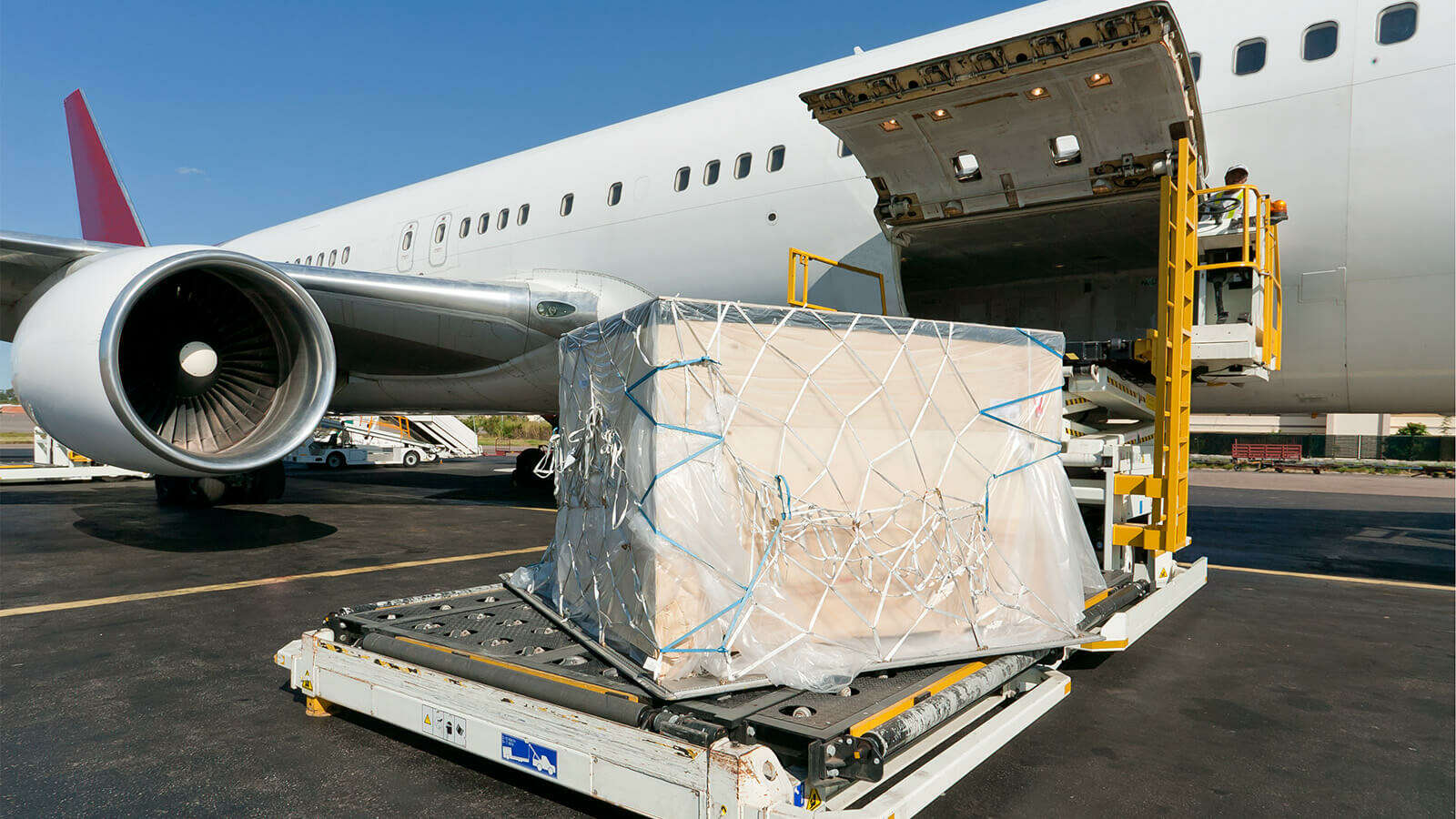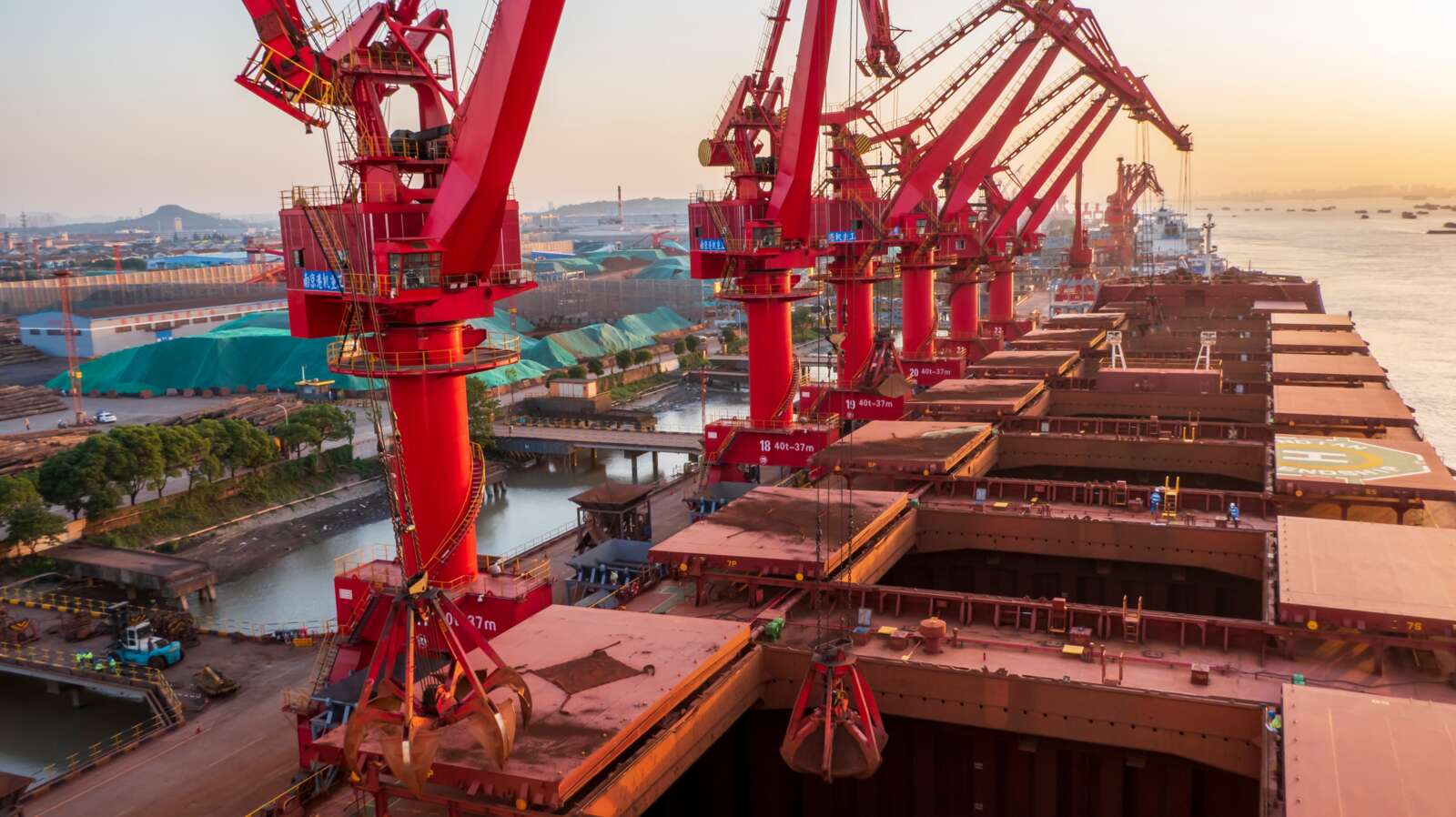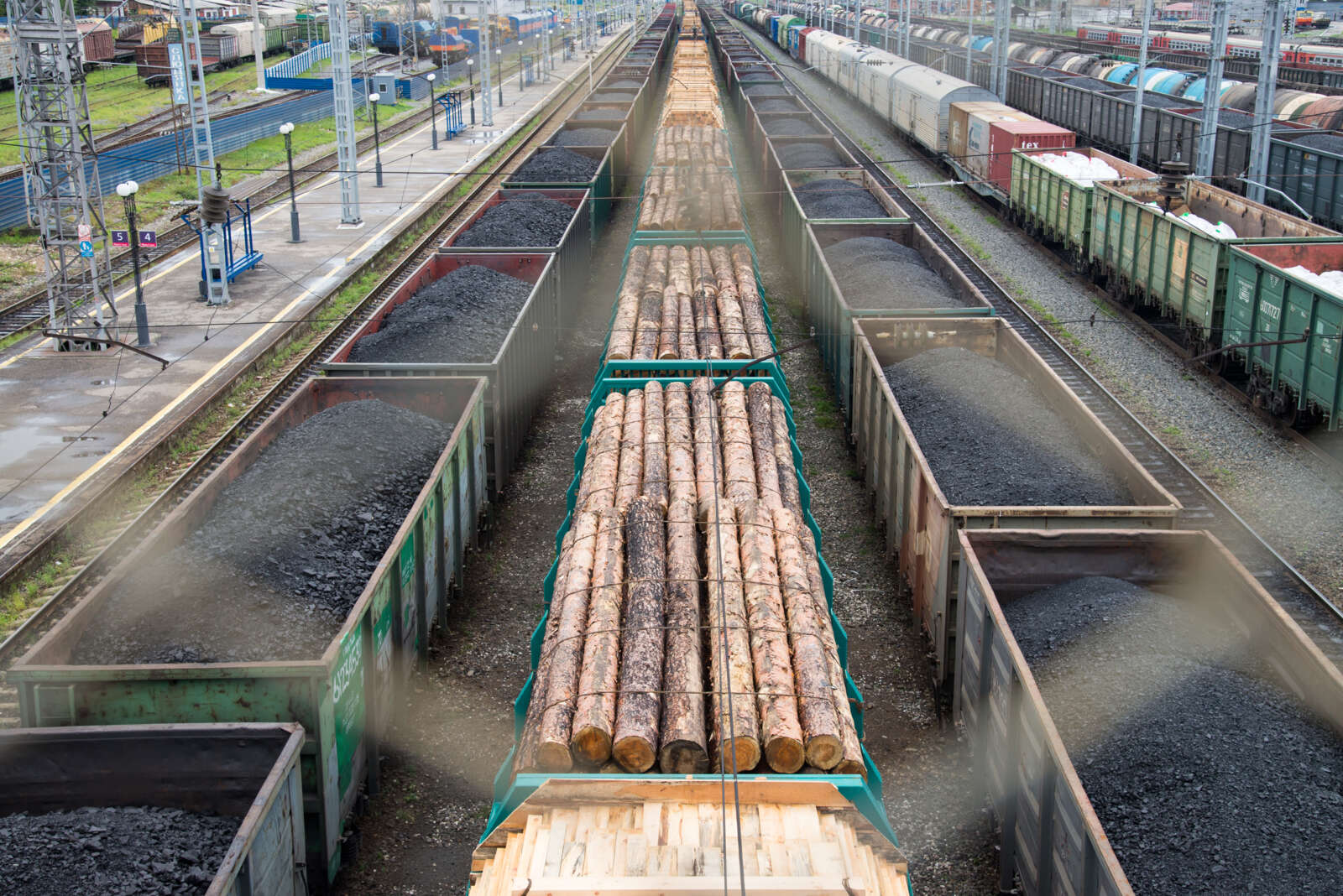In the dynamic landscape of global trade, the choice of shipping method can significantly impact a business's operations and bottom line. From the vast expanse of sea shipment options to the swift efficiency of air transport, and the unique capabilities of break bulk, road, and rail transport, each mode offers distinct advantages tailored to specific needs. Understanding these options and their inherent benefits is essential for businesses to navigate the complexities of international logistics effectively. As experts in freight forwarding, we recognize the critical importance of having specialized agents proficient in freight shipping. Our aim is to unravel the complexities of shipping modes and link you with top-notch shipping agents, irrespective of your preference.
Sea shipment
Sea shipment is a pillar of global trade, offering a multitude of options to businesses seeking to transport goods across oceans. From the standard 20ft and 40ft containers to the larger 40’HC and 45’HC containers, and the flexibility of Less than Container Load (LCL) shipments, the sea presents a diverse array of choices, including specialized solutions like reefer containers for temperature-sensitive cargo.
Amidst the diverse sea shipments options available, they possess inherent advantages in cost efficiency, versatility, and global reach, making them indispensable for businesses engaged in international trade:

Cost Efficiency
Sea shipments are renowned for their cost-efficiency, particularly when it comes to transporting large volumes of cargo over long distances. The economics of scale are in favor of sea transport. The larger the cargo volume, the more cost-effective it becomes. This makes it an excellent choice for businesses dealing with bulky or heavy goods, like machinery, raw materials, or consumer products.
Versatility
Sea shipments offer a wide range of container sizes, from the standard 20ft and 40ft containers to the larger 40’HC and 45’HC containers. This versatility allows businesses to choose containers that perfectly match the size of their cargo as well as its needs, including specialized solutions like reefer containers for temperature-sensitive goods such as perishable products etc.
On the other hand, if you're shipping smaller loads, you can opt for LCL (Less than Container Load) shipments, which provide cost savings by sharing containers with other shippers.
Global Reach
The sea connects major trade lanes across the world. Businesses looking to ship goods between continents, such as shipping from Asia to the USA or Asia to Europe, can tap into this extensive network of sea routes. It ensures that even remote destinations are accessible by sea, making it a reliable choice for international trade.
However, it's essential to match your cargo's size, urgency, and destination with the right sea shipment type for optimal results, and our shipping agents can assist in determining the most suitable container and shipping method for your specific needs.
Air shipment
When time is of the essence and efficiency is paramount, businesses turn to the skies for their shipping needs. Within the domain of air shipments, there are three primary categories: Courier services, Air Cargo, and Freighters. Each category serves a unique purpose, providing tailored solutions to meet the diverse demands. Whether it's the urgent delivery of small packages through courier services, the swift transportation of larger consignments via air cargo, or the logistical prowess of freighters for bulk shipments, the air transport sector offers a comprehensive range of options to facilitate global commerce seamlessly.
Courier Services
Courier services are the epitome of speed and reliability. They are perfect for businesses that require swift delivery, especially for smaller and high-value items. Think of documents, medical supplies, or high fashion goods. With courier services, you can have your goods delivered almost anywhere in the world within a matter of days.
Air Cargo

Air cargo strikes a balance between speed and cost. It's suitable for a wide range of cargo types, from electronics to perishables. While it's generally more expensive than sea transport, it offers significant time savings, making it ideal for businesses looking to meet tight deadlines or enter markets quickly.
Freighters
Freighters are tailor-made for oversized or special cargo needs. Whether you're shipping heavy machinery, oversized equipment, or even live animals, freighters can accommodate your cargo's unique requirements. This mode ensures that your cargo arrives safely and intact, even if it doesn't fit within the confines of a standard container.
Navigating the airways efficiently requires understanding your cargo's urgency and budget. Our freight forwarders specialize in selecting the right air shipment mode for your business.
Break bulk shipping
Break bulk shipping introduces a unique approach to transporting goods, particularly bulk commodities such as grains, rice, and sugar. Unlike containerized shipping, break bulk involves transporting cargo in its natural state, whether loose, bagged, or bundled. This method offers versatility and flexibility, allowing for the transportation of various types of commodities that may not fit within standard container dimensions. Let's delve deeper into the world of break bulk shipping to understand its significance:

Versatile Cargo
Break bulk shipping offers unparalleled versatility, accommodating a wide range of commodities, from agricultural products like grains and sugar to heavy industrial materials such as steel and timber. Whether your cargo is loose, bagged, or bundled, break bulk shipping provides the flexibility needed to transport diverse goods efficiently.
Flexibility
Unlike containerized shipping, break bulk cargo is not confined to standardized containers. This flexibility allows for more efficient loading and unloading processes, leading to reduced handling costs and minimizing the risk of damage during transit.
Specialized Handling
Break bulk shipping often necessitates specialized equipment and handling procedures to ensure the safe transportation of fragile or sensitive cargo, such as machinery or perishable goods. This specialized approach guarantees that delicate items receive the necessary care and attention throughout the shipping process, making break bulk shipping a reliable choice for goods with unique handling requirements.
Road transport
On land, road transport plays a crucial role in the logistics process. It provides the flexibility needed for cross-border and domestic shipments. With an extensive network of roads, it ensures goods reach their destinations efficiently and reliably. Whether traveling through cities or rural areas, road transport is essential for businesses worldwide.

Cross-Border Shipments
Cross-border shipments via road transport offer several benefits. They provide direct access to neighboring countries, reducing transit times and enhancing reliability. Road transport allows for flexible route selection based on factors like distance and road conditions. It also enables door-to-door delivery, minimizing handling and transfer risks. Additionally, road vehicles can transport a wide range of goods, making them versatile for various cargo types.
National Inland Transportation
Within a country, primarily facilitated by road networks, national inland transportation is essential for domestic logistics. It ensures seamless movement of goods within a country's borders, connecting production centers with distribution hubs and end consumers. With reliable road infrastructure, goods can be transported efficiently and cost-effectively to various regions, supporting economic growth and development. National inland transportation offers flexibility in scheduling and route planning, optimizing supply chains and promoting trade across the country. Overall, it plays a crucial role in driving economic activity and ensuring the smooth flow of goods within a nation.
Adaptability
One of the greatest strengths of road transport is its adaptability. It can handle a wide range of cargo types, from small parcels to oversized equipment. Whether you're transporting perishable goods, hazardous materials, or fragile products, road transport can be customized to meet your specific requirements. This adaptability makes it a versatile choice for businesses with diverse cargo needs.
By understanding these advantages, businesses can leverage road transport to optimize their supply chain, ensuring timely and cost-effective deliveries.
Rail Transport
Rail transport can be essential for moving large volumes of freight over long distances efficiently, offering a cost-effective alternative to both ocean freight and air freight. Unlike ocean freight, which can be slower and subject to delays due to weather, port congestion or geopolitical reasons, rail transport provides faster transit times, particularly for inland destinations. Additionally, rail transport is often more cost-effective than air freight, especially for bulky or heavy goods, offering competitive rates while still delivering goods in a timely manner.
Eco-Friendly
Rail transport stands out as an environmentally friendly mode of shipping. Trains are highly efficient in terms of fuel consumption and emissions per ton-mile compared to trucks or airplanes. This eco-friendliness is particularly important in today's world, where sustainability and reducing carbon footprints are paramount concerns for many businesses.

Cargo Types
Rail transport excels in handling specific types of cargo. For example, it's an excellent choice for shipping heavy goods, such as raw materials, minerals, and industrial equipment. Its stability and capacity make it suitable for transporting bulk commodities like coal, grain, or minerals across long distances.
Stability and Safety
Trains operate on fixed tracks, ensuring stability during transportation. This stability reduces the risk of cargo shifting or getting damaged during transit, making rail transport a reliable choice for goods that need to arrive intact. Furthermore, rail transport is statistically one of the safest modes of shipping, with fewer accidents and incidents compared to road transport.
Cost-Effective Over Long Distances
For long-distance transportation, especially in countries with well-developed rail networks, it can be more cost-effective than road transport. Trains can carry a large volume of goods at once, reducing the overall cost per mile compared to trucking. This cost-efficiency can significantly benefit businesses with extensive supply chains.
Intermodal Connectivity
Rail transport often integrates well with other modes of transportation, like trucks and ships. This intermodal connectivity allows for seamless movement of goods from one mode to another, providing businesses with flexibility in designing their logistics routes. It's especially valuable for businesses seeking a combination of cost-effectiveness and speed. For example, a shipping company may transport containers filled with automotive parts from a manufacturing facility in Asia to a port in Europe via sea freight. Upon reaching the port, these containers are seamlessly transferred onto rail cars for transport to various distribution centers across the continent. This integration of sea and rail transport enables efficient movement of goods from the point of origin to final destinations, optimizing both cost and time factors in the logistics chain.
Reduced Congestion
Railways are typically less congested than highways, especially during peak traffic times. This can lead to more predictable transit times and reduced chances of delays due to traffic congestion, a common issue in road transport.
Incorporating rail transport into your logistics strategy can offer numerous advantages, especially for businesses dealing with specific cargo types, long-distance transportation, or a commitment to eco-friendly shipping practices. Understanding these benefits can help you make informed decisions when selecting shipping modes for your business needs.
Conclusion
As businesses strive for efficiency, reliability, and cost-effectiveness in their supply chain operations, the selection of the right shipping method becomes paramount. Whether leveraging the cost efficiency and global reach of sea shipments, the speed and reliability of air transport, the versatility and flexibility of road transport, or the stability and eco-friendliness of rail transport, each mode presents unique opportunities and challenges. By aligning shipping strategies with business objectives and leveraging the advantages of each mode, businesses can optimize their logistics operations to meet the demands of today's global marketplace.
At Shipping-Agent.com, we understand that each business is unique. That's why we're here to be your trusted partner, connecting you to the best shipping agents, regardless of your chosen mode.
Remember, whether you're navigating the seas, soaring through the skies, or hitting the road, we've got your back. Contact us today to optimize your shipping strategy and take your business to new horizons.